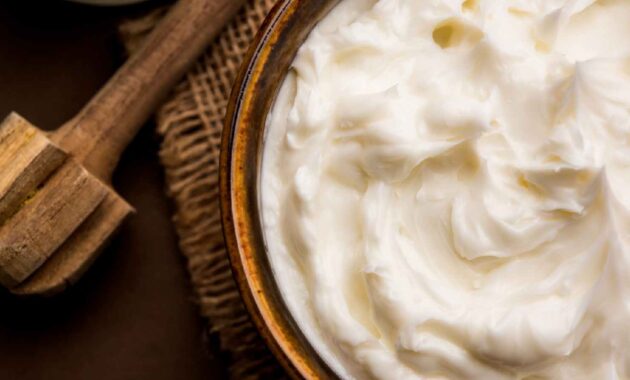The Hindu festival of Janmashtami is about celebrating Lord Krishna, fondly called ‘makhan chor’ for his love towards butter. Stories about the deity’s fondness for white butter have been passed down from one generation to another. He is believed to have loved ‘makhan misri’ – white butter mixed with sugar. If the combination doesn’t gel well with your taste, let us simply tell you about the health benefits of white butter.
In 2023, Krishna Janmashtami is to be celebrated on September 7. A ‘bhog’ prepared for Lord Krishna also includes white butter.
What is white butter?
White butter is a natural and unprocessed alternative to the yellow butter that is commonly found on store shelves. Setting it apart from its salted, yellow counterpart, white butter boasts an array of nutritional advantages, Anju Mohan, Senior Dietitian, Department of Clinical Nutrition, Amrita Hospital, Kochi, tells Health Shots.

What are the health benefits of white butter?
One of the best qualities of white butter is its absence of salt, a characteristic that sets it apart from the often sodium-rich yellow butter, the expert tells Health Shots. This feature makes white butter a healthier choice as it curbs sodium and trans fat consumption. Also, white butter has essential nutrients such as vitamins A and D. Here are some of the reasons why white butter may be good for health:
1. Enhanced immunity
White butter contains essential nutrients like calcium, vitamin A and vitamin D, which help to improve immune system function. These nutrients support the body’s ability to defend against infections and illnesses, making them a valuable addition to your diet for overall health.
2. Increased metabolism
White butter contains lecithin, a natural compound that aids in the breakdown of unhealthy fats and promotes a faster metabolism. This can be particularly beneficial for those aiming to manage their weight and achieve better metabolic health.
3. Healthy skin
Thanks to its vitamin E content, white butter supports healthy skin. Vitamin E is known for its antioxidant properties, which help to maintain clear and radiant skin. Regular consumption of white butter may contribute to a reduction in skin issues, says Mohan.

4. Joint lubrication
The molecular structure of white butter allows it to assimilate fats effectively. This quality can provide lubrication to the joints, offering relief to people with joint pain or discomfort. It’s a natural way to support joint health and mobility.
5. Enhanced brain activity
White butter contains arachidonic acid, which is a fatty acid that plays a crucial role in brain development, says the expert. This is especially beneficial for children, as it supports their cognitive functions and overall brain development. So, include white butter in their diet for better brain health.
How is white butter made?
The traditional production of white butter involves churning cream, often referred to as malai, which is extracted from milk. It begins with the gentle warming of milk, allowing the cream to naturally rise to the top. Subsequently, the cream is churned until it transforms into butter, typically followed by refrigeration so that it gets solidified.
You can also use fresh milk and cream to make white butter. In this, the cream is separated from the milk. The rest of the milk is blended with cold water then it undergoes the churning process. This method helps to separate the water from the butterfat, which is then gathered, desiccated and stored in a moisture-free environment.
What is the nutritional value of white butter?
The exact nutritional content may vary based on the brand and preparation method. But generally, in every 100 grams of white butter, you’ll find approximately 717 calories, primarily derived from its rich fat content, says Mohan. It provides minimal protein, usually about 1 gram, and almost negligible carbohydrates. White butter is also a source of essential fat-soluble vitamins such as vitamin A and vitamin D, and contains trace amounts of minerals, including calcium.
But due to its notable saturated fat content, white butter warrants a mindful approach while adding it to daily meals. Generally, a small pat or teaspoonful of white butter can go well with bread and vegetables. If you have high cholesterol levels or a history of heart disease, it’s best to be cautious with white butter.
#Janmashtami #health #benefits #white #butter
